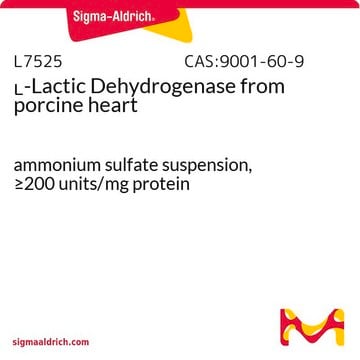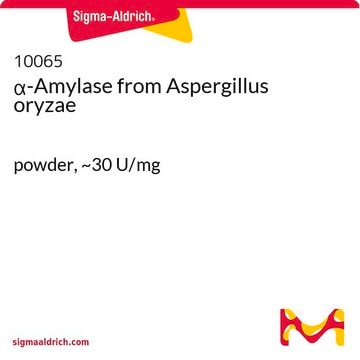PGR1
Abscisic Acid Immunoassay Detection Kit
Quantitate the levels of abscisic acid (ABA) in plant tissue
Sinónimos:
Abscisic Acid Detection Kit, Immunoassay Kit
Iniciar sesiónpara Ver la Fijación de precios por contrato y de la organización
About This Item
UNSPSC Code:
10171502
NACRES:
NA.84
Productos recomendados
General description
Abscisic Acid Immunoassay Detection Kit is used to quantitate the levels of abscisic acid (ABA) in plant tissues under normal and stress conditions. The plant growth regulator (PGR) enzyme immunoassay detection kit is a convenient test for the quantitative determination of plant hormones. The test utilizes monoclonal antibodies specific to the targeted hormones.
Application
Abscisic Acid Immunoassay Detection Kit has been used in measuring the levels of abscisic acid (ABA):
- in Sedum alfredii roots
- in Brassica juncea plant
- in Medicago truncatula and Arabidopsis thaliana seedlings
Related product
Referencia del producto
Descripción
Precios
Storage Class
10 - Combustible liquids
Certificados de análisis (COA)
Busque Certificados de análisis (COA) introduciendo el número de lote del producto. Los números de lote se encuentran en la etiqueta del producto después de las palabras «Lot» o «Batch»
¿Ya tiene este producto?
Encuentre la documentación para los productos que ha comprado recientemente en la Biblioteca de documentos.
Chui E Wong et al.
The Plant journal : for cell and molecular biology, 57(5), 832-845 (2008-11-05)
The transition to flowering is characterized by a shift of the shoot apical meristem (SAM) from leaf production to the initiation of a floral meristem. The flowering process is of vital importance for agriculture, but the associated events or regulatory
G M Banowetz et al.
Hybridoma, 13(6), 537-541 (1994-12-01)
Monoclonal antibodies were prepared against the plant growth regulator abscisic acid (ABA) conjugated to keyhole limpet hemocyanin through C-4. One of these antibodies was characterized for use in a competition fluorescence enzyme-linked immunosorbent assay (F-ELISA). The antibody detected femtomole quantities
EXO modifies sucrose and trehalose responses and connects the extracellular carbon status to growth.
Janina Lisso et al.
Frontiers in plant science, 4, 219-219 (2013-06-28)
Plants have the capacity to adapt growth to changing environmental conditions. This implies the modulation of metabolism according to the availability of carbon (C). Particular interest in the response to the C availability is based on the increasing atmospheric levels
Mehar Fatma et al.
Frontiers in plant science, 7, 521-521 (2016-05-21)
The role of nitric oxide (NO) and sulfur (S) on stomatal responses and photosynthetic performance was studied in mustard (Brassica juncea L.) in presence or absence of salt stress. The combined application of 100 μM NO (as sodium nitroprusside) and
Xiao-Xia Xu et al.
BMC plant biology, 17(1), 195-195 (2017-11-11)
Hexoses are important metabolic signals that respond to abiotic and biotic stresses. Cold stress adversely affects plant growth and development, limiting productivity. The mechanism by which sugars regulate plant cold tolerance remains elusive. We examined the function of INVINH1, a
Nuestro equipo de científicos tiene experiencia en todas las áreas de investigación: Ciencias de la vida, Ciencia de los materiales, Síntesis química, Cromatografía, Analítica y muchas otras.
Póngase en contacto con el Servicio técnico







